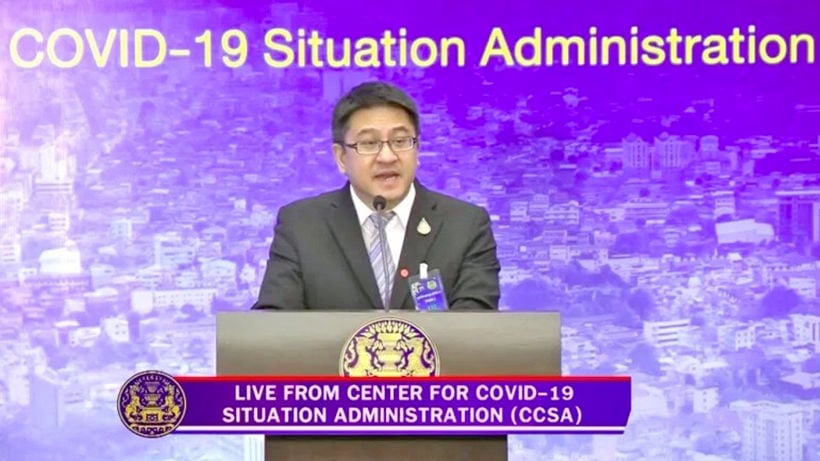Foreigners with work permits to be allowed back into Thailand on case by case basis

Foreigners with work permits or permission from the Labour Ministry (and other some other government agencies) will be allowed to enter the country after registration, under phase 3 of the lockdown relaxation, which begins Monday. The Foreign Ministry made the announcement today.
The Foreign Ministry has told Thailand’s foreign chambers of commerce about the relaxation. Eligible foreign nationals are invited to apply at Thai Embassies in their home countries. They must have health insurance covering Covid-19 treatment valued at at least 3 million baht and a health certificate. They will also be subject to 14 day quarantine on entry to Thailand, either in a state facility or in a private facility, at their own cost.
“Permission to enter does not cover all groups as, we are proceeding step by step.”
Here are the details of the letter sent to all foreign chambers of commerce in Thailand…
1. The Royal Thai Government’s invocation of the Emergency Decree on Public Administration in Emergency Situations BE2548 (2005) (No I) dated 25 March BE2563 (2020) to control the outbreak of the Coronavirus Disease (Covid-19), closes the entry into the Kingdom of non-Thai nationals, in accordance with the laws on communicable diseases and immigration. However, clause 3 of the Regulation issued under the said Emergency Decree, also allows non-Thai nationals who either possess a valid work permit or have already been granted permission from a Thai government agency to work in the Kingdom, to apply for permission to enter the Kingdom.
2. It is, however, requested that only those in urgent need to enter the Kingdom submit an application for entry. The Ministry of Foreign Affairs, in consultation with the Board of Investment and the Ministry of Labour, will consider all requests for entry on a case by case basis, taking into account urgency and economic importance, among others.
3. The procedure for non-Thai nationals who wish to submit an application for entry are as follows:
3.1 Contact the Royal Thai Embassy or the Royal Thai Consulate-General in their country of departure to apply for ‘Certificate of Entry into the Kingdom of Thailand” at least 10 working days before the date of intended departure. The applicants must present:
(1) a copy of his work permit or copy of a letter of permission issued by a Thai Government agency (in most cases, by the Ministry of Labour) to work in Thailand;
(2) a valid health insurance policy covering all expenditures of medical treatment, including Covid-19 worth at least 100,000 US dollars.
3.2 The Thai Embassy/Consulate-General will forward the application to the Ministry of Foreign Affairs in Bangkok. If the application is approved, the Thai Embassy/Consulate-General will be instructed to issue the “Certificate of Entry into the Kingdom of Thailand” and appropriate visa to the applicant.
4. At the port of departure/embarkation (eg airline check-in counter), the approved applicant is required to present (I) a “Certificate of Entry into the Kingdom of Thailand” issued by the Royal Thai Embassy Consulate-General; (II) a completed and signed “Declaration Form” obtained from the Embassy/Consulate-General; (III) a “Fit to Fly Health Certificate” issued no more than 72 hours before departure; and (IV) health insurance covering all expenditures of medical treatment, including Covid-19, while traveling to Thailand in an amount of at least 100,000 US dollars.
5. Upon entry into the Kingdom, non-Thai nationals will be subjected to a 14-day state quarantine at a government-designated Alternative State Quarantine (ASQ) facility at their own expenses, and obliged to comply with the government’s disease prevention measures pursuant to clause 11 of the Regulation issued under Section 9 of the said Emergency Decree.
SOURCE: Nation Thailand
Latest Thailand News
Follow The Thaiger on Google News:


























